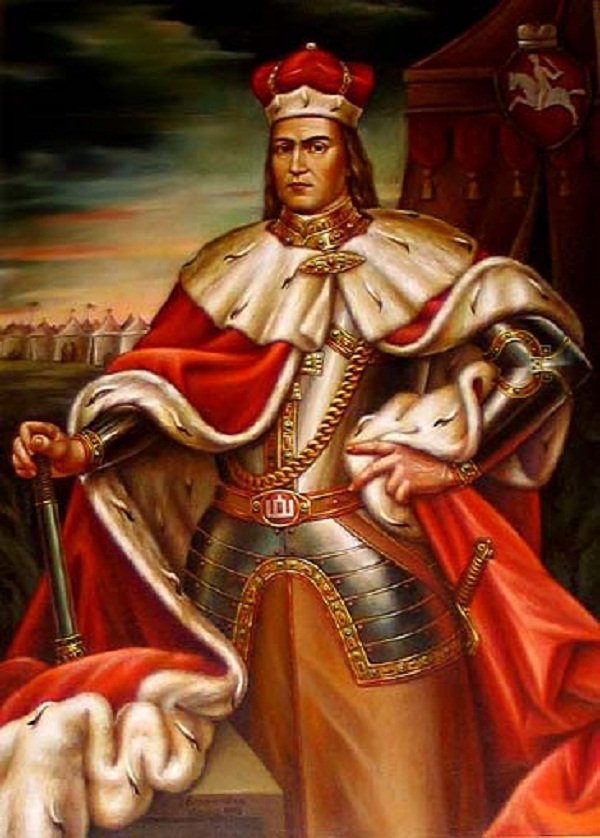About his personal life today, the information is not preserved, but the political activities of Vitovt wrote his name in gold in the history of Belarus.
The Grand Duke of the Grand Duchy of Lithuania, the son of Prince Keystut, he, at the beginning of his career, reigned in Garodna, then in Trokai. After the Kreva Union of 1387, using the coronation of Grand Duke Jagiły to the Polish throne, the Polish feudal lords began to attempt to subjugate the Grand Duchy of Lithuania by appointing Skirgail to govern these lands. It was Vitovt who led the resistance, overthrew Skirgail and himself began to rule the principality, regardless of the Polish king.
In 1392 an agreement was reached, according to which the Belarusian gentry retained its independence, and Vitovt was appointed for life for life by the Grand Duchy of Lithuania. His reign was marked by the strengthening of princely power, centralization and the strengthening of statehood. He attracted the service class to the state service, encouraging his devotion and awarding the nobility with lands.
Vitovt led an active foreign policy. He warmed separatist sentiments among Russian principalities. For political purposes he repeatedly gave Zhmud to the Teutonic Order, in whose affairs he constantly intervened, then fighting, then concluding peace.
He led a constant struggle against the Tatars and cleared the territory between the Dnieper and the Azov Sea from them. In 1399, Vitovt lost the battle with one of the generals of Tamerlane, and this stopped his plans to conquer all the lands of Russia and the Golden Horde. However, he managed to maintain control of the Belarusian-Lithuanian state over the Northern Black Sea Coast.
Vitovt significantly expanded the state's borders, including in 1395 the city of Smolensk, after the war with the Moscow principality in 1408, marked the border of the Belarusian-Lithuanian state along the rivers Ugra and Oka. During the battle of Grunwald Vytaut personally led the Belarusian-Lithuanian troops. It was the BVHL gonfalons, - Polotsk, Vitebsk, Gorodenskaya, Pinsk, Volkovysk, Lida, Novgorod, Smolensk, Slonim and others - that were the main force in defeating the Crusaders.
After the victory in the Battle of Grunwald, according to the Treaty of Meln in 1422, GG Zhmudy returned to herself. Twice, in 1429 and 1430 Vytautas gathered congresses of the most influential politicians of Europe, in order to accept the royal title and crown. However, these plans prevented Poland, which did not want to abandon plans to unite the two states, but under the crown of Poland.
During the rule of Vitovt, many Belarusian cities received the Magdeburg right (Brest, Grodno, etc.). Vytaut not only strengthened the position of his own country, but also helped in the struggle of Jan Hus. After the arrival in Vilno of Jerome Prague, a colleague of Jan Hus, Vytautas Zhigimont Kaributovich, the viceroy with five thousand troops, came to the aid of the national liberation movement in the Czech Republic. In 1424, Kaributovich took Prague and claimed his rights to the throne of the Czech Republic. However, after Vitovt's death, he was forced to return to his homeland. The throne of ON after Vitovt did not last long Skirgaylo. However, Vitovt's brother Zhygimont the First Old soon replaced him on the throne of the Belarusian-Lithuanian state.

Thank you for sharing! Vytautas the Great is most valued in Lithuania for expanding the borders to the East as never and after before. His personality and determination really inspires.
다음 포스팅도 기대할께요~~~
Good post